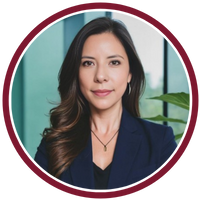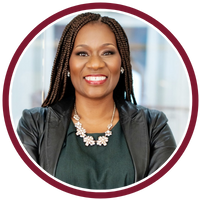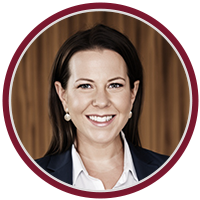In its recent report, S&P Global analyzed earnings and share price data of U.S. -based companies between 2002 and May 2019, following 5,825 new executive appointments for roles of CEO and CFO. About 10% of those appointments were women.
The data showed that:
- In the two years following a new female CEO appointment, these companies outperformed those with newly-appointed male CEOs by an average of 20% on share price returns.
- In the two years following a new female CFO appointment,these companies outperformed those with newly-appointed male CFOs by an average of 8% on share price returns and 6% on profitability.
Despite all this positive news, there are several challenges that female founders and leaders still face today.
-
Issue # 1: Being uncomfortable with failure
One of the biggest setbacks women experience is being uncomfortable with failure. There are two reasons for it:
Evolutionary: Women used to be the main caretakers of children for centuries and thus it is natural for us to instinctively avoid putting ourselves in risky situations which could pose a threat to our stability.
Psychological: Women hold themselves to a higher performance standard, are more easily discouraged, and react to negative feedback much more strongly than men. Research conducted by Harvard Economics professor Claudia Goldin, demonstrated that women who earned B’s were half as likely as those who earned A’s in introductory economics to stick with the major. For men, there was no difference.
All entrepreneurs are risk-takers, and thus to be successful, we must become comfortable with uncertainty and with a very high probability of failure. But then should you take every possible risk?
The Startup Station’s recommendation:
I suggest you formulate a robust framework for evaluating risks that will reduce uncertainty to a number of predefined parameters you can measure and act upon. This approach will also lead to more responsible decision-making.
-
Issue # 2: Capital-raising roadblocks
It’s a well-known fact that it is much harder for women to raise capital. According to a recent Fortune article, only 2.2% of all VC funding in 2018 went to female founders.
There are three reasons for it:
- Women won’t ask for funding as much as men do because they wait until they are a lot more prepared (issue # 1 at work).
- First impression bias. As Dana Kanze, London Business School Professor, noted in her TED talk, many female founders often get asked negative questions when they pitch. This ultimately results in them not able to sell their startup adequately and, consequently, not getting funded.
- Lack of finance knowledge. Many founders don’t know finance, but this issue is especially dire for women and can significantly reduce their chances of getting funded. If you are not able to speak the investor language, credibly prove why your business is financially feasible, or know your key performance indicators and how you can achieve them, it will be a lot harder to convince investors to give you capital.
The Startup Station’s recommendation:
- Don’t be afraid to ask for funding when you meet the qualifying criteria for a given round. The downside of waiting for too long is that you run out of cash and may be forced to close your venture altogether, forfeiting months of hard work and any intellectual property you’ve developed.
- To address the first impression bias, I recommend that you respond to the immediate question and concern, but then turn it around and focus on the bigger picture, on the long-term revenue potential, on the frontiers that your startup is poised to conquer.
- Finally, learn finance. The Startup Station specifically deals with this problem. We specialize in modeling and valuing early-stage ventures and are passionate about supporting all female founders.
-
Issue # 3: Lack of a support network
A recent SCORE’s report showed that entrepreneurs who seek mentorship significantly increase their chances of success regardless of gender. That is not a surprise, and thus it is so important for any startup to have a strong board of advisors. The board of advisors enables you not only to get access to missing expertise and attain much needed outside perspective, but also adds credibility to your startup, provides accountability to your actions, and gives you access to a much wider network.
The bad news is that even though we do know the benefits of networking, we are not using it fully. A study from McKinsey and LeanIn.org recently found that women have smaller networks than men, spend less face time with senior executives, and are more likely to have a network made up exclusively of other women.
There are two reasons for it:
- Different approach to networking. Men tend to approach network more transactionally where women are more focused on creating deeper and meaningful connections.
- Life-work balance constraints. Many women prefer not to go to as many evening networking events because of family commitments.
The Startup Station’s recommendation:
- I recommend you start approaching networking more strategically. This goes both for clearly identifying whom you want to meet at which event as well as which events you go to to meet your time constraints.
- I also suggest that you don’t try to force something that does not feel natural to you, but adopt a style of meeting people that you are comfortable with and it will organically lead to more meaningful connections.When I attended business school, I viewed networking as a chore precisely because of its transactional and artificial nature. Only later, when I became an entrepreneur, I began to enjoy meeting people, and learning about them, their ventures, their careers and their interests.
-
Issue # 4: Life-work balance issues
No male founder will ever be asked how he’s planning to balance work and kids, or work and pregnancy. For all female founders, this happens a lot, especially as they are raising money.
There is no question that being an entrepreneur is a 24/7 job, and running a company does take a toll on family life. There is also no question that there are ways to handle it with the right support system both at work and at home.
The Startup Station’s recommendation:
With this in mind, I recommend that you create a strong support network at home to allow you to sometimes work long hours and travel, but at the same time build a culture at your company enabling all employees to fulfill their family commitments, with even more flexibility for young mothers.
-
Issue # 5: Lack of gender diversification – the only woman in the room
Being the only woman in the room may be intimidating. I have heard many female executives and founders reflect on them feeling like outsiders in a room full of men especially if they also all know each other.
The Startup Station’s recommendation:
- In a networking event, I recommend that you adapt the networking approach we discussed above and focus on meeting a few key people. Doing preliminary research of who they are may also help you to feel more comfortable and find common ground faster.
- When you present your company to predominantly male investors, consider framing your argument using the points of reference other meeting participants can relate to. For example, if you are pitching a product for a female customer base, focus on hard numbers, market size, demand potential and profitability, as opposed to why women will love it.
- Seek other female founder and VC mentors and role models. The good news is that you are not the only one who faces issues specific to female entrepreneurs. Often times, the issues are fairly similar, though the specific context may change. Getting advice and guidance from those who have crossed the hurdles and found successful approaches before can be invaluable in helping navigate the startup challenges for female founders.
In conclusion, while there are challenges, they can be overcome, and I would like to empower every female founder out there to pursue her dream.
-
About Victoria Yampolsky, CFA
Victoria Yampolsky, CFA, is President and Founder of The Startup Station, an educational and consulting company for modeling and valuing early-stage startups. She specializes in the financial modeling and valuation of pre-revenue companies and evaluates the financial feasibility of business models. She also created a finance curriculum for early-stage founders and launched The Startup Station’s educational program in 2015. Since then, more than 1,000 founders have attended The Startup Station finance classes and learned the basics of financial modeling, valuation, and startup financing.
Previously, Victoria worked for Deutsche Bank and was a technology consultant with CapGemini’s Financial Services Division. Victoria holds a Bachelor’s Degree, Cum Laude, in Computer Science, with a minor in Mathematics, from Cornell University and an MBA, with honors, from Columbia Business School. Victoria is also on the Advisory Board of the Computing and Information Science (CIS) Department of Cornell University.
Still have questions?
We are happy to talk to you. Book a FREE 30-min consultation now by pressing the button below and, as a bonus, we will send you a COMPLIMENTARY financial health checklist.








 “Coming in with no formal background in financial modeling or accounting and as a first-time founder, I needed exactly this program. Victoria’s financial training covered startup accounting, investor-ready financials, key metrics, and break-even across common business models, presenting and analyzing financials, and term sheets and valuation, which finally made the numbers click. I built a working bottoms-up forecast, clarified our unit economics, and can now speak to the model with more confidence. Jeanne’s investing expertise clarified what investors actually care about, from pitch deck structure to effective cold outreach. Demo Day prep and the Demo Day pressure-tested the narrative and produced actionable feedback. The broader network, from go-to-market to legal, was generous and will remain a source of support. I’m leaving with a credible model, a sharper deck, a focused target list, and a clear plan I’m already executing!”
“Coming in with no formal background in financial modeling or accounting and as a first-time founder, I needed exactly this program. Victoria’s financial training covered startup accounting, investor-ready financials, key metrics, and break-even across common business models, presenting and analyzing financials, and term sheets and valuation, which finally made the numbers click. I built a working bottoms-up forecast, clarified our unit economics, and can now speak to the model with more confidence. Jeanne’s investing expertise clarified what investors actually care about, from pitch deck structure to effective cold outreach. Demo Day prep and the Demo Day pressure-tested the narrative and produced actionable feedback. The broader network, from go-to-market to legal, was generous and will remain a source of support. I’m leaving with a credible model, a sharper deck, a focused target list, and a clear plan I’m already executing!” “
“ “
“ “
“

 “If you’re raising capital and want to shine when pitching to investors, I highly recommend you choose Victoria Yampolsky and the Startup Station as your resource for high performance results. Victoria is extremely well versed in all aspects of raising capital and the startup landscape. She provides clients with outstanding tools, applicable advice and thoughtful insights to support their fundraising efforts.
“If you’re raising capital and want to shine when pitching to investors, I highly recommend you choose Victoria Yampolsky and the Startup Station as your resource for high performance results. Victoria is extremely well versed in all aspects of raising capital and the startup landscape. She provides clients with outstanding tools, applicable advice and thoughtful insights to support their fundraising efforts. “Victoria is a rare find in the startup world. She’s brilliant with startup financial strategies and has this no-nonsense work ethic that proves to deliver results. Victoria worked with a participant of 2020 Startups, a startup founder, and within a couple of months the founder raised capital. Victoria has done several workshops and speaking engagements at 2020 Startups and is always insightful and held in the highest regard by the audience.”
“Victoria is a rare find in the startup world. She’s brilliant with startup financial strategies and has this no-nonsense work ethic that proves to deliver results. Victoria worked with a participant of 2020 Startups, a startup founder, and within a couple of months the founder raised capital. Victoria has done several workshops and speaking engagements at 2020 Startups and is always insightful and held in the highest regard by the audience.” “These workshops are extremely useful for all of us. Victoria is the kind of presenter/professional who inspires confidence. I’d recommend her to any startup trying to figure out how it needs to be organized, capitalized, and operated to have a good business model going forward. She focuses on fundamentals, which, too often, are sorely lacking in our ecosystem, and she knows her stuff backwards and forwards”
“These workshops are extremely useful for all of us. Victoria is the kind of presenter/professional who inspires confidence. I’d recommend her to any startup trying to figure out how it needs to be organized, capitalized, and operated to have a good business model going forward. She focuses on fundamentals, which, too often, are sorely lacking in our ecosystem, and she knows her stuff backwards and forwards” “Victoria Yampolsky is THE essential tool for any startup looking to present a viable financial model! If you are a founder who, like me, lacks the business/finance background – YOU NEED HER. If you are looking to show your investors a serious plan for growth and capitalization – YOU NEED HER. Victoria’s thoroughness and dedication will ensure no stone goes unturned in the FOUNDATION of your BUSINESS. And to top it all, she explains everything with such calm & clarity, it is an absolute delight to be working with her.”
“Victoria Yampolsky is THE essential tool for any startup looking to present a viable financial model! If you are a founder who, like me, lacks the business/finance background – YOU NEED HER. If you are looking to show your investors a serious plan for growth and capitalization – YOU NEED HER. Victoria’s thoroughness and dedication will ensure no stone goes unturned in the FOUNDATION of your BUSINESS. And to top it all, she explains everything with such calm & clarity, it is an absolute delight to be working with her.” Liz Wald has 25+ years’ experience building company operations and mobilizing global teams in emerging, disruptive industries.
Liz Wald has 25+ years’ experience building company operations and mobilizing global teams in emerging, disruptive industries.
 Blair Severn is the Chairman and Co-founder of enabling ideas®, a Venture
Blair Severn is the Chairman and Co-founder of enabling ideas®, a Venture Victoria Yampolsky is a serial entrepreneur, strategic CFO advisor for numerous early-stage start-ups and expert in financial modeling and valuation. She’s a passionate advocate for female founders and fair access to capital for all.
Victoria Yampolsky is a serial entrepreneur, strategic CFO advisor for numerous early-stage start-ups and expert in financial modeling and valuation. She’s a passionate advocate for female founders and fair access to capital for all.
 Irina Sychov is an expert in voice, pitching, and fundraising and the Founder of ANIMA Women, a community supporting women in business. A five-time startup founder, she has extensive experience with family offices in London and Miami. Irina gained recognition for her dynamic presence on the British show X Factor, impressing judges like Simon Cowell, which sharpened her skills in audience engagement and self-marketing—essential tools in the business world.
Irina Sychov is an expert in voice, pitching, and fundraising and the Founder of ANIMA Women, a community supporting women in business. A five-time startup founder, she has extensive experience with family offices in London and Miami. Irina gained recognition for her dynamic presence on the British show X Factor, impressing judges like Simon Cowell, which sharpened her skills in audience engagement and self-marketing—essential tools in the business world.









 Marcia Dawood is an early-stage investor who serves on the Securities and Exchange Commission’s Small Business Capital Formation Advisory Committee. She is a venture partner with Mindshift Capital, a member of Golden Seeds, and the chair emeritus of the Angel Capital Association (ACA), a global professional society for angel investors.
Marcia Dawood is an early-stage investor who serves on the Securities and Exchange Commission’s Small Business Capital Formation Advisory Committee. She is a venture partner with Mindshift Capital, a member of Golden Seeds, and the chair emeritus of the Angel Capital Association (ACA), a global professional society for angel investors. Sanford is the Chief Strategy Officer of PowerUp Globally, a strategic and financial planning initiative aimed at revenue-generating seed-level female-led ventures.
Sanford is the Chief Strategy Officer of PowerUp Globally, a strategic and financial planning initiative aimed at revenue-generating seed-level female-led ventures. Irina Sychov – Founder of Women’s Business Community
Irina Sychov – Founder of Women’s Business Community  Thierry Vodounou, PMP, is Managing Director & Founder,
Thierry Vodounou, PMP, is Managing Director & Founder,  Victoria Yampolsky is a serial entrepreneur, strategic CFO advisor for numerous early-stage start-ups and expert in financial modeling and valuation. She’s a passionate advocate for female founders and fair access to capital for all.
Victoria Yampolsky is a serial entrepreneur, strategic CFO advisor for numerous early-stage start-ups and expert in financial modeling and valuation. She’s a passionate advocate for female founders and fair access to capital for all. “What I appreciated most about this program was the opportunity to stop during the work day and have an opportunity to reflect. In addition to having access to pre- and post-session materials that were profoundly useful (which I will undoubtedly go back to), being asked to stop, breathe, and process was a gift that carried throughout the day, week, and program. I recommend this program to any female founder or business owner in the midst of building her business.”
“What I appreciated most about this program was the opportunity to stop during the work day and have an opportunity to reflect. In addition to having access to pre- and post-session materials that were profoundly useful (which I will undoubtedly go back to), being asked to stop, breathe, and process was a gift that carried throughout the day, week, and program. I recommend this program to any female founder or business owner in the midst of building her business.” “Atending the Power Up Coaching pilot has been an absolute game-changer for me. Victoria and Hamp’s expertise, passion, unwavering support and genuine commitment to empowering women in the entrepreneurial space were evident in every session. Also, what truly made this journey unforgettable were the incredible women I met along the way. Sharing stories, challenges, and dreams with fellow entrepreneurs created a bond that transcended mere networking—it felt like finding a tribe where I truly belonged. It has equipped me with invaluable skills, insights, and a network of like-minded individuals who continue to inspire and support me on my entrepreneurial journey. The lessons learned and the connections made have become pillars of strength in my entrepreneurial journey, guiding me through the highs and lows with gratitude, grace and resilience. I know that the PowerUp Coaching program will always be more than just a program to me—it’s a part of my story, a chapter filled with growth, friendship, and empowerment. I’m immensely grateful to Victoria and Hamp and The Startup Station for helping me realize my potential as a woman entrepreneur.
“Atending the Power Up Coaching pilot has been an absolute game-changer for me. Victoria and Hamp’s expertise, passion, unwavering support and genuine commitment to empowering women in the entrepreneurial space were evident in every session. Also, what truly made this journey unforgettable were the incredible women I met along the way. Sharing stories, challenges, and dreams with fellow entrepreneurs created a bond that transcended mere networking—it felt like finding a tribe where I truly belonged. It has equipped me with invaluable skills, insights, and a network of like-minded individuals who continue to inspire and support me on my entrepreneurial journey. The lessons learned and the connections made have become pillars of strength in my entrepreneurial journey, guiding me through the highs and lows with gratitude, grace and resilience. I know that the PowerUp Coaching program will always be more than just a program to me—it’s a part of my story, a chapter filled with growth, friendship, and empowerment. I’m immensely grateful to Victoria and Hamp and The Startup Station for helping me realize my potential as a woman entrepreneur. “As a busy entrepreneur, I was drawn to PowerUp Globally Coaching Program’s focus on cultivating resilience, emotional intelligence, and a growth mindset for managing the inevitable stresses of building a business. From the first session, the small group size allowed a safe, supportive environment to openly discuss challenges.
“As a busy entrepreneur, I was drawn to PowerUp Globally Coaching Program’s focus on cultivating resilience, emotional intelligence, and a growth mindset for managing the inevitable stresses of building a business. From the first session, the small group size allowed a safe, supportive environment to openly discuss challenges.  “What a valuable experience!
“What a valuable experience! “Victoria really distilled down the financial model to the inputs that need to be discovered in order to determine business viability. Her attention to detail and experience show in taking those inputs and filling out the rest of the model. These are the real numbers that you need for investors.”
“Victoria really distilled down the financial model to the inputs that need to be discovered in order to determine business viability. Her attention to detail and experience show in taking those inputs and filling out the rest of the model. These are the real numbers that you need for investors.” “Victoria provided me with great knowledge for the financial projection and reviewed my pitch deck where she provided me with great pointers. She definitely is somebody I count as my inner circle of advisors and recommend her as the go to person for any start up.”
“Victoria provided me with great knowledge for the financial projection and reviewed my pitch deck where she provided me with great pointers. She definitely is somebody I count as my inner circle of advisors and recommend her as the go to person for any start up.” “If you’re raising capital and want to shine when pitching to investors, I highly recommend you choose Victoria Yampolsky and the Startup Station as your resource for high performance results. Victoria is extremely well versed in all aspects of raising capital and the startup landscape. She provides clients with outstanding tools, applicable advice and thoughtful insights to support their fundraising efforts.
“If you’re raising capital and want to shine when pitching to investors, I highly recommend you choose Victoria Yampolsky and the Startup Station as your resource for high performance results. Victoria is extremely well versed in all aspects of raising capital and the startup landscape. She provides clients with outstanding tools, applicable advice and thoughtful insights to support their fundraising efforts. “We are a couple of engineers going through lot’s of trials and errors trying to launch our startup so meeting with Victoria was priceless in terms of getting a fresh unbiased perspective on our business model and getting advice on how to move forward.
“We are a couple of engineers going through lot’s of trials and errors trying to launch our startup so meeting with Victoria was priceless in terms of getting a fresh unbiased perspective on our business model and getting advice on how to move forward. “I have the greatest appreciation for Victoria’s contribution in analyzing financial trends and developing the monetization strategies for my business. She is not only an experienced financial analyst, but she is also very creative and gave my business many important suggestions. I felt comfortable and willing to reveal information easily, which helped make the valuation process easier. Victoria can see the big picture almost immediately, and at the same time she is a stickler for details. These attributes make her a perfect financial advisor and mentor for entrepreneurs. Further, Victoria, once given a task, is completely dedicated to it. She has a keen ability to process and synthesize information and make the right decisions, and she comes with the highest recommendation.”
“I have the greatest appreciation for Victoria’s contribution in analyzing financial trends and developing the monetization strategies for my business. She is not only an experienced financial analyst, but she is also very creative and gave my business many important suggestions. I felt comfortable and willing to reveal information easily, which helped make the valuation process easier. Victoria can see the big picture almost immediately, and at the same time she is a stickler for details. These attributes make her a perfect financial advisor and mentor for entrepreneurs. Further, Victoria, once given a task, is completely dedicated to it. She has a keen ability to process and synthesize information and make the right decisions, and she comes with the highest recommendation.” “Victoria is an amazing resource that every start-up should have. She is whip smart and diligent. We worked with her on the valuation of our company and she’s been an invaluable resource in refining our assumptions, revenue and expenditure models. If you think you understand the fundamentals of your own business model, talk to Victoria and get ready to learn so much more!”
“Victoria is an amazing resource that every start-up should have. She is whip smart and diligent. We worked with her on the valuation of our company and she’s been an invaluable resource in refining our assumptions, revenue and expenditure models. If you think you understand the fundamentals of your own business model, talk to Victoria and get ready to learn so much more!” “I had the pleasure of working with Victoria for building a working financial model for my business. Her expertise and acumen are not only impressive, but her personable nature made her a joy to work with as well. She was able to offer valuable insights and direction as we strategically built out a financial model, utilizing reliable data assumptions that translate to a usable document for my business. The result and end-product proved the value of both the time and monetary investment. I couldn’t recommend her enough as a resource for any entrepreneur looking to build out a financial model, financial roadmap and/or valuation of their enterprise.”
“I had the pleasure of working with Victoria for building a working financial model for my business. Her expertise and acumen are not only impressive, but her personable nature made her a joy to work with as well. She was able to offer valuable insights and direction as we strategically built out a financial model, utilizing reliable data assumptions that translate to a usable document for my business. The result and end-product proved the value of both the time and monetary investment. I couldn’t recommend her enough as a resource for any entrepreneur looking to build out a financial model, financial roadmap and/or valuation of their enterprise.” “Victoria Yampolsky came highly recommended by a colleague of mine and I’ve been fortunate to work with her! She completed the valuation and the financial model for our startup, EnergyPoints. Her unique framework for modeling early-stage ventures allowed us to refine our business plan and use strategy and industry standards to credibly formulate assumptions. Victoria is a Columbia Business School grad and CFA, and her company, The Startup Station, has done 100s of valuations and has an impressive track record. She presented her valuation to two national banks with our accountant, and in both scenarios, she was praised by the level of detail that went into her extensive valuation. I can’t recommend her highly enough!”
“Victoria Yampolsky came highly recommended by a colleague of mine and I’ve been fortunate to work with her! She completed the valuation and the financial model for our startup, EnergyPoints. Her unique framework for modeling early-stage ventures allowed us to refine our business plan and use strategy and industry standards to credibly formulate assumptions. Victoria is a Columbia Business School grad and CFA, and her company, The Startup Station, has done 100s of valuations and has an impressive track record. She presented her valuation to two national banks with our accountant, and in both scenarios, she was praised by the level of detail that went into her extensive valuation. I can’t recommend her highly enough!” “Victoria was a key advisor for Predictive People – as an early stage startup we had tons of questions and we needed professional guidance to sort them out. I am really glad we had her by our side to solve them all, ending with a solid business plan and financial projections. I can’t recommend her more, she’s professional, fast, empathetic, and incredibly smart, a true partner for any startup.”
“Victoria was a key advisor for Predictive People – as an early stage startup we had tons of questions and we needed professional guidance to sort them out. I am really glad we had her by our side to solve them all, ending with a solid business plan and financial projections. I can’t recommend her more, she’s professional, fast, empathetic, and incredibly smart, a true partner for any startup.” “Victoria is trustworthy, knowledgeable and customer-focused startup strategic CFO. I’ve been impressed since day 1 with the responsiveness, thoroughness and overall professionalism of Victoria. According to the traditional scenario of almost all early stage startups, the founders are involved in all processes of the company formation. So I am no exception without having a financial education, without professional Excel skills – I nevertheless decided to build a financial model on our own. Honestly, it seemed impossible. But in the end, we did it in a total of 3 weeks. I want to express my deepest gratitude for professionalism and incredible talent to motivate all of our team members. Victoria has a unique ability to get into the essence of the business very quickly, to think very flexibly and innovatively – which is very important for our startup.
“Victoria is trustworthy, knowledgeable and customer-focused startup strategic CFO. I’ve been impressed since day 1 with the responsiveness, thoroughness and overall professionalism of Victoria. According to the traditional scenario of almost all early stage startups, the founders are involved in all processes of the company formation. So I am no exception without having a financial education, without professional Excel skills – I nevertheless decided to build a financial model on our own. Honestly, it seemed impossible. But in the end, we did it in a total of 3 weeks. I want to express my deepest gratitude for professionalism and incredible talent to motivate all of our team members. Victoria has a unique ability to get into the essence of the business very quickly, to think very flexibly and innovatively – which is very important for our startup. “I was a student and client of Victoria through The Startup Station and cannot highlight enough how helpful the process was for our company in reaching our first funding milestone and personally for me. Victoria is a fantastic teacher and recommend her financial modelling courses to anyone. We also worked one to one to refine our company model/financial roadmap and Im proud of my newly developed, ninja-level Excel skills. Paraphrasing from someone famous “Clarity trumps confidence any day of the week” and it’s what I feel from working with Victoria.”
“I was a student and client of Victoria through The Startup Station and cannot highlight enough how helpful the process was for our company in reaching our first funding milestone and personally for me. Victoria is a fantastic teacher and recommend her financial modelling courses to anyone. We also worked one to one to refine our company model/financial roadmap and Im proud of my newly developed, ninja-level Excel skills. Paraphrasing from someone famous “Clarity trumps confidence any day of the week” and it’s what I feel from working with Victoria.” “Building a financial model with Victoria and The Start Up Station for a mutual client was an illuminating experience!
“Building a financial model with Victoria and The Start Up Station for a mutual client was an illuminating experience! “Victoria is a rare find in the startup world. She’s brilliant with startup financial strategies and has this no-nonsense work ethic that proves to deliver results. Victoria worked with a participant of 2020 Startups, a startup founder, and within a couple of months the founder raised capital. Victoria has done several workshops and speaking engagements at 2020 Startups and is always insightful and held in the highest regard by the audience.”
“Victoria is a rare find in the startup world. She’s brilliant with startup financial strategies and has this no-nonsense work ethic that proves to deliver results. Victoria worked with a participant of 2020 Startups, a startup founder, and within a couple of months the founder raised capital. Victoria has done several workshops and speaking engagements at 2020 Startups and is always insightful and held in the highest regard by the audience.” “Victoria and The Startup Station Team were absolute game-changers for Ovaterra. Victoria served as my right-hand CFO through fundraising, M&A, liquidity crises and more — always guiding the ship with calm, detail-oriented and strategic advice. I would recommend her and her team to any Founder or executive who needs a strategic, fractional CFO to guide your business to the next level.”
“Victoria and The Startup Station Team were absolute game-changers for Ovaterra. Victoria served as my right-hand CFO through fundraising, M&A, liquidity crises and more — always guiding the ship with calm, detail-oriented and strategic advice. I would recommend her and her team to any Founder or executive who needs a strategic, fractional CFO to guide your business to the next level.” “Victoria, we raised $1.4M! It’s finally
“Victoria, we raised $1.4M! It’s finally  “Victoria is one of the smartest, and most talented financial analysts out there. She has created the financial models for 2 of my companies, to which we have raised over $20M using her financials and valuation reports. She is very professional and always makes you prove the assumptions:) She will always be a vital part to my businesses.”
“Victoria is one of the smartest, and most talented financial analysts out there. She has created the financial models for 2 of my companies, to which we have raised over $20M using her financials and valuation reports. She is very professional and always makes you prove the assumptions:) She will always be a vital part to my businesses.” “In business, and especially with startups, getting to a place of clarity around the business and financial models can be challenging even for the most experienced professional. Victoria brings the right mix of business and financial know-how and quickly understands the moving pieces. As such, she’s able to provide an excellent product, a deeper sense of understanding about the project based on its’ needs, and a sense of calm and assurance that the challenges faced will be dealt with in a way that drives growth.”
“In business, and especially with startups, getting to a place of clarity around the business and financial models can be challenging even for the most experienced professional. Victoria brings the right mix of business and financial know-how and quickly understands the moving pieces. As such, she’s able to provide an excellent product, a deeper sense of understanding about the project based on its’ needs, and a sense of calm and assurance that the challenges faced will be dealt with in a way that drives growth.” “I had the pleasure of working closely with Victoria as fractional CFO of our startup. Her expertise in business and financial modeling is truly exceptional. Victoria played a pivotal role in helping our company think through every aspect of our business, and her ability to create a comprehensive model was nothing short of impressive. She not only provided a clear plan for our future but also identified areas where we could improve and grow.
“I had the pleasure of working closely with Victoria as fractional CFO of our startup. Her expertise in business and financial modeling is truly exceptional. Victoria played a pivotal role in helping our company think through every aspect of our business, and her ability to create a comprehensive model was nothing short of impressive. She not only provided a clear plan for our future but also identified areas where we could improve and grow. “Victoria Yampolsky is THE essential tool for any startup looking to present a viable financial model! If you are a founder who, like me, lacks the business/finance background – YOU NEED HER. If you are looking to show your investors a serious plan for growth and capitalization – YOU NEED HER. Victoria’s thoroughness and dedication will ensure no stone goes unturned in the FOUNDATION of your BUSINESS. And to top it all, she explains everything with such calm & clarity, it is an absolute delight to be working with her.”
“Victoria Yampolsky is THE essential tool for any startup looking to present a viable financial model! If you are a founder who, like me, lacks the business/finance background – YOU NEED HER. If you are looking to show your investors a serious plan for growth and capitalization – YOU NEED HER. Victoria’s thoroughness and dedication will ensure no stone goes unturned in the FOUNDATION of your BUSINESS. And to top it all, she explains everything with such calm & clarity, it is an absolute delight to be working with her.”